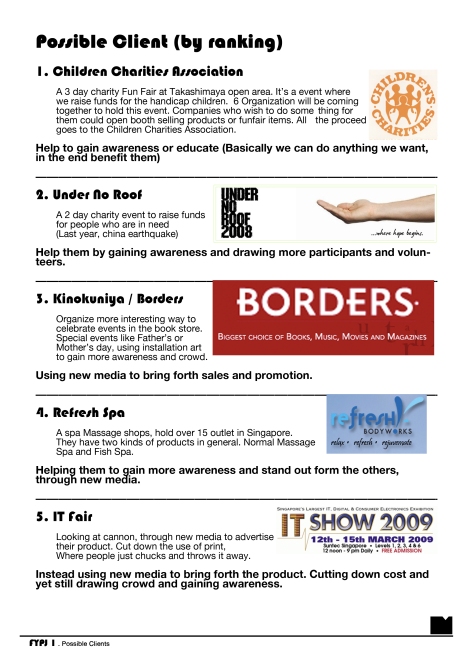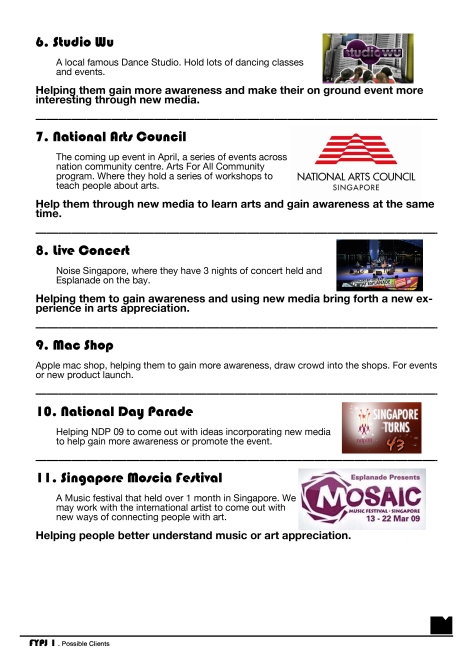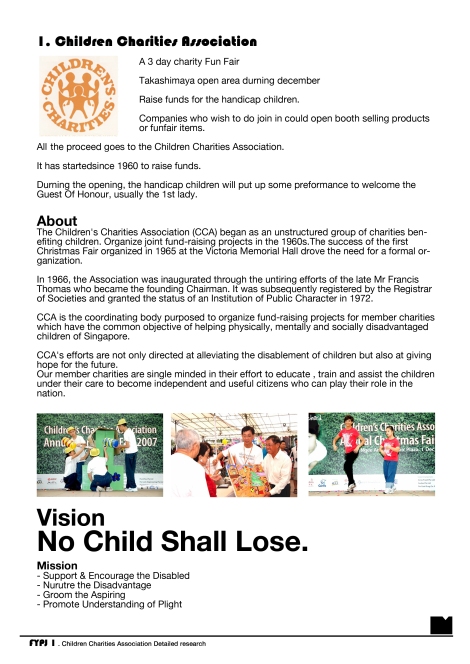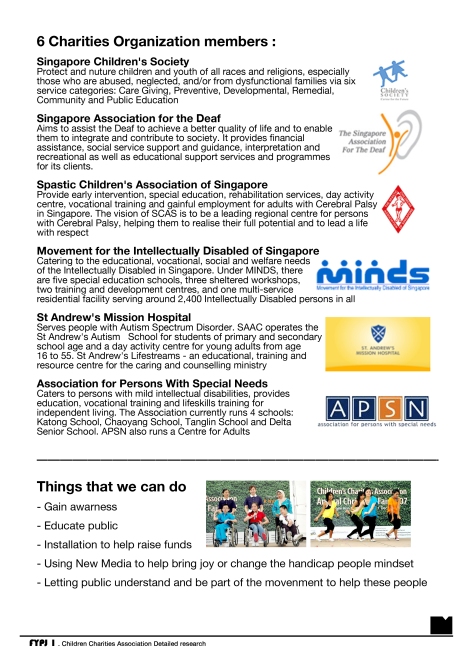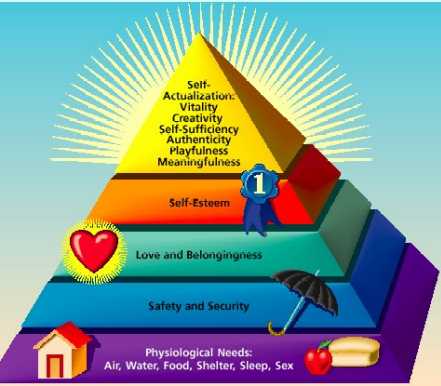Presentation
What we did yesterday is basically preparing our slides for the presentation to the other lecturers who have not seen our development.
Listening to the comments lecturers give:
-More generic
-More research cases similar to Tan Pin Pin’s
-The overall space
-Overall message audience will receive
-Too wide, focus on one or two categories
After discussion, we decided to focus on one or two categories instead of all the 6 charities.
The one that we are more interested on is the deaf.
Philosophy [Maslow’s Hierarchy of needs]
There are some similar factors that are seen in the concept development “From Empathy to Beauty” through simplicity and purity from a child’s mind. The factors of innocence and purity that leads to happiness and joy, values of acceptance and feelings involve in relationships meet the basic needs of Love/Belonging, Esteem and Self Actualization.
Maslow’s Hierarchy of Needs
1 Self Actualization Needs
(full potential)
2 Esteem Needs
(self respect, personal worth, autonomy)
3 Love and Belongingness Needs
(love, friendship, comradeship)
4 Safety Needs
(security; protection from harm)
5 Physiological Needs
(food, sleep, stimulation, activity)
Maslow has set up a hierarchy of five levels of basic needs. Beyond these needs, higher levels of needs exist. These include needs for understanding, esthetic appreciation and purely spiritual needs. In the levels of the five basic needs, the person does not feel the second need until the demands of the first have been satisfied, nor the third until the second has been satisfied, and so on. Maslow’s basic needs are seen above.
The hierarchic theory is often represented as a pyramid, with the larger, lower levels representing the lower needs, and the upper point representing the need for self-actualization. Maslow believes that the only reason that people would not move well in direction of self-actualization is because of hindrances placed in their way by society. He states that education is one of these hindrances. He recommends ways education can switch from its usual person-stunting tactics to person-growing approaches. Maslow states that educators should respond to the potential an individual has for growing into a self-actualizing person of his/her own kind.
10 points that educators should address are listed:
1. We should teach people to be authentic, to be aware of their inner selves and to hear their inner-feeling voices.
2. We should teach people to transcend their cultural conditioning and become world citizens.
3. We should help people discover their vocation in life, their calling, fate or destiny. This is especially focused on finding the right career and the right mate.
4. We should teach people that life is precious, that there is joy to be experienced in life, and if people are open to seeing the good and joyous in all kinds of situations, it makes life worth living.
5. We must accept the person as he or she is and help the person learn their inner nature. From real knowledge of aptitudes and limitations we can know what to build upon, what potentials are really there.
6. We must see that the person’s basic needs are satisfied. This includes safety, belongingness, and esteem needs.
7. We should refreshen consciousness, teaching the person to appreciate beauty and the other good things in nature and in living.
8. We should teach people that controls are good, and complete abandon is bad. It takes control to improve the quality of life in all areas.
9. We should teach people to transcend the trifling problems and grapple with the serious problems in life. These include the problems of injustice, of pain, suffering, and death.
10. We must teach people to be good choosers. They must be given practice in making good choices.

